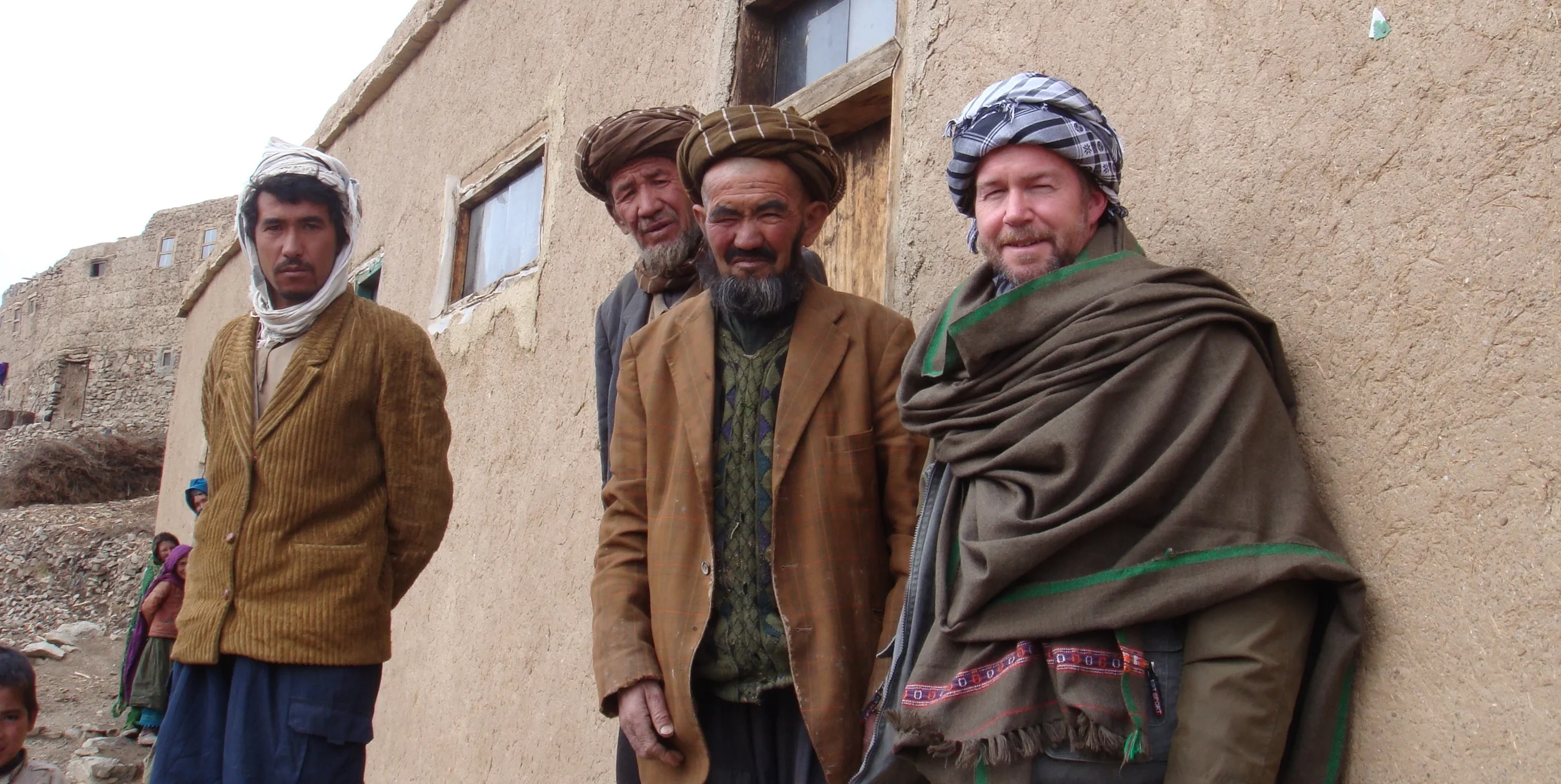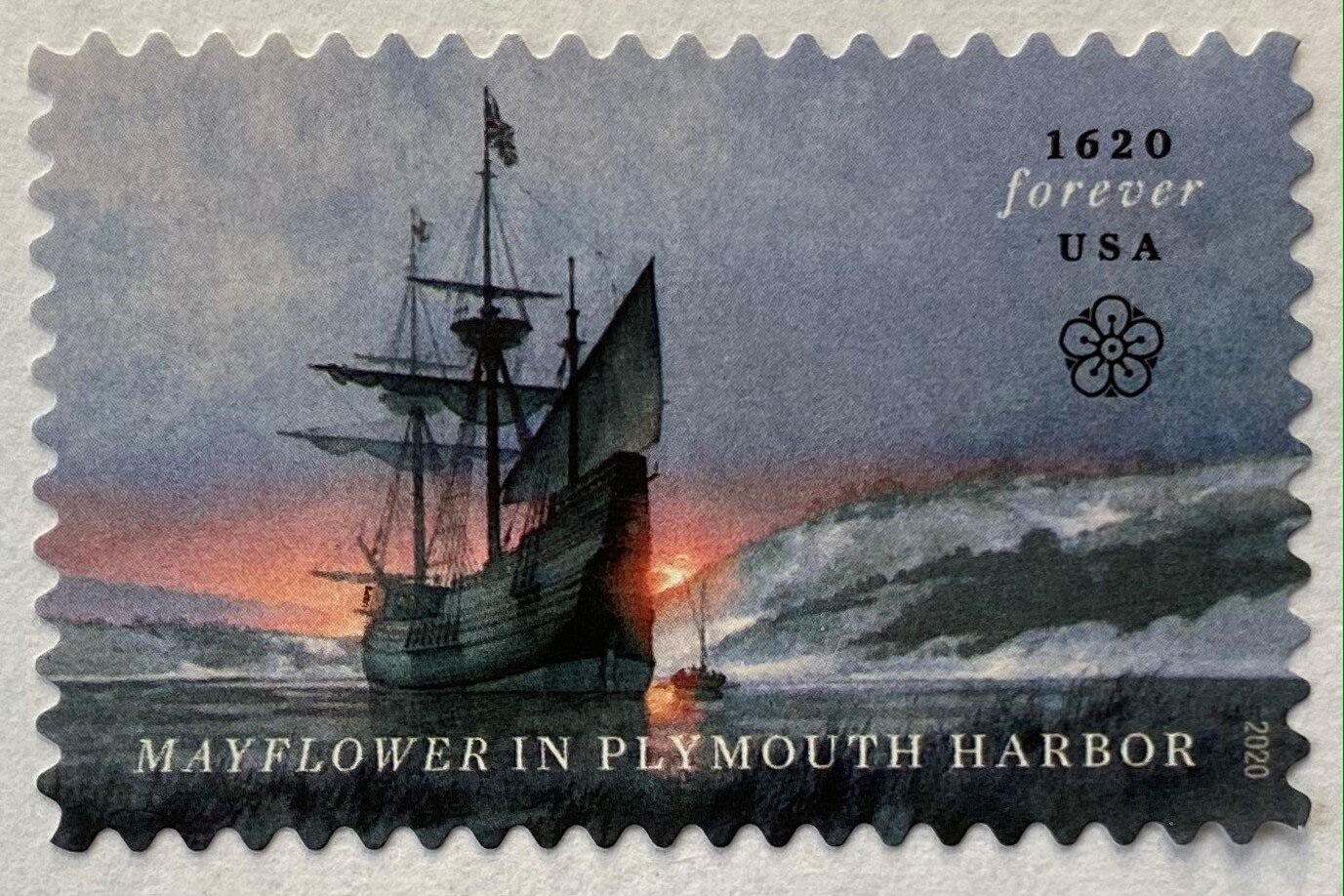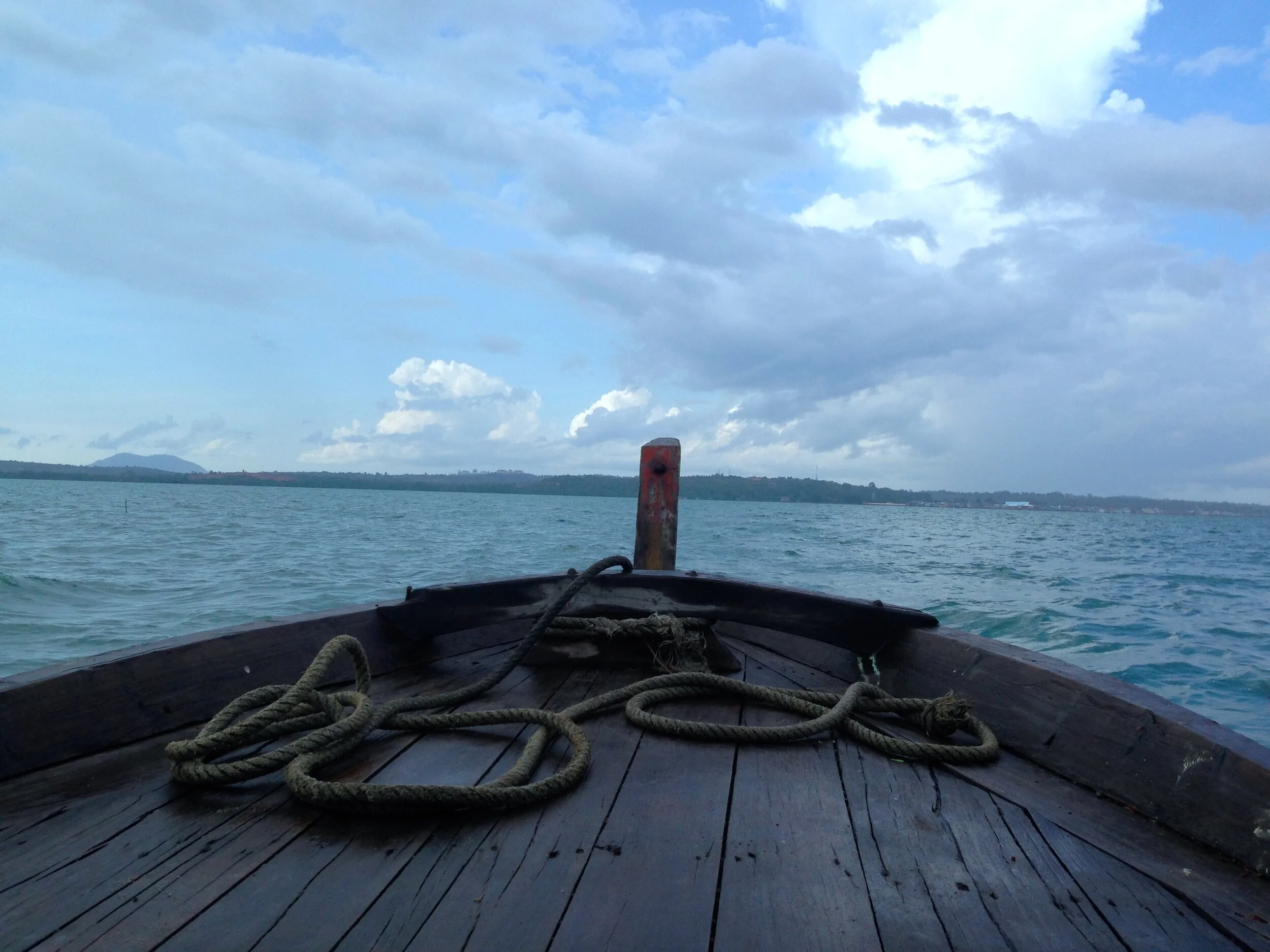Zoe and her family’s story is a Hebrews 11 one—filled with sorrow, crossroads, question marks, endurance, and the all-surpassing joy of knowing Christ and following Him. The following is an excerpt from the chapter “The Broken Sword” in the book A Company of Heroes, published by Crossway.
Jon Wesley and his wife Sarah have taught me so much about courage in cross-bearing, as they have followed Christ and made him known in gospel-destitute regions of Indonesia. The path to get there and stay there has been filled with pain and unanswered questions that persist to this day. Yet, they have snatched the broken sword of opportunity and embraced the suffering and joy set before them.
The two of them served Christ in China when they were first married. The happy news that they were expecting was soon shadowed by tests that revealed their baby girl would have significant physical difficulties; so they came off the field for the birth. I had returned from my first trip to Afghanistan, and Jon Wesley was at a church where I shared about the hard, life-and-death circumstances that the Christians there were joyfully pushing through for the sake of the gospel. After the service, I saw Jon Wesley, and he was literally sobbing. Without a word, I knew why. What I described of pioneer missions was what he believed God had made him and Sarah for. The compass of their lives pointed to lands and peoples who had never once heard the good news. But was that opportunity now closed to them? The prospects were bleak, considering the needs their daughter would have. He was torn by love and caught in a crossroad of question marks.
With hope in the God who gave her to them, they named their baby Zoe, meaning “life.” Zoe was born with half a heart and would almost immediately require open heart surgery to survive. In February 2009, I wrote in my journal:
This afternoon Jon Wesley called. He and Sarah have been forced to make a difficult detour on their return to serving in China. Their little four-month-old daughter underwent open-heart surgery last week. Baby Zoe is a two-foot-long fighter who came through the surgery by God’s grace, and Jon Wesley called to say that Zoe was home! This is a miracle! I laughed with joy and disbelief at the sudden news. Jon Wesley and Sarah have held their little girl through the shadow of death, and in that valley they have known the fellowship of Christ’s sufferings, leaving their unanswered questions at his scarred feet. Their battles between faith and doubt, joy and sorrow, life and death, perfectly speak to the truth in 2 Corinthians 4: “We are afflicted in every way, but not crushed; perplexed, but not driven to despair; persecuted, but not forsaken; struck down, but not destroyed; always carrying in the body the death of Jesus, so that the life of Jesus may also be manifested in our bodies. . . . For it is all for your sake, so that as grace extends to more and more people it may increase thanksgiving, to the glory of God. So we do not lose heart.”
Not long afterwards, an opportunity opened for Jon Wesley and Sarah to go to Indonesia. They talked over the situation at length with Zoe’s doctor. He admitted that no family in this kind of situation had ever asked him if it was OK to move to Indonesia! He reminded them that Zoe would need a second open-heart surgery around the age of three. But until then her condition could be monitored in nearby Singapore; so from a medical standpoint, he couldn’t tell them not to go. And so they went. While on this short-term assignment, they learned of the gospel needs of the Riau, a people group that live on an archipelago of islands that stretch from Sumatra to the Sulu Sea. So they determined to return to Indonesia long term.
In 2012, when Zoe was three, she had her second heart surgery. Her recovery was longer than the first time, but things looked good—and the doctor again gave them a green light to go back to Indonesia. They had every reason to stay in America, but they trusted God—and therefore had every reason to go to live in Indonesia long term.
When I visited them in 2015, Zoe was six years old—and had two little brothers, Zyon and Jon Wesley Jr. And I saw that not only were Jon Wesley and Sarah making disciples on their island, but they were making forays to other islands, learning the local dialect, and “fishing for men.”
* * * * * * * * * * * * *
Went to the docks at Lengkang early this morning with Jon Wesley. Boats of all sorts bobbed about the ragged wharves where passengers waited for one of the sea taxis to their island. Jon Wesley bargained in Bahasa for our passage (thirteen dollars) to Karimun, and soon we were in open waters, sputtering past lumbering freighters plying the straits toward Singapore. Karimun is just one of a thousand inhabited islands in the archipelago, where the Riau people live. The Riau are sometimes called “sea gypsies” because their entire lives are centered on the sea.
Along the way to Karimun, Jon Wesley struck up a conversation with one of the passengers on our boat. Pak Rahmat volunteered to show us around his island, which consisted of a jigsaw of shanties on stilts, pieced together by narrow boardwalks. These places were part of the island only in a technical sense—it was like a Legoland that extended into the sea on pylons and stilts. Beneath us the water slopped with a thick coat of garbage, sewage, and whatever animal was unlucky enough to fall into the mix.
Pak Rahmat took us to the island’s main attraction—the fish market, which was piled with slithering sea creatures. Jon Wesley used this as an occasion to expand his vocabulary, for a man who wants to reach fishermen better know his fish! He pointed to different ones asking, “Apa itu?” (What is it?) He learned that sea bass are called lebam and eels are sembilang. The women behind the table giggled at his questions but were obviously pleased that he would talk to them. One old fisherman caught on and pulled from a tub his prize catch from that morning. He held up a stingray the size of a turkey platter. The ancient mariner had a cigarette barely hanging on his lip, which bobbed with every syllable, “Apa itu?” Jon Wesley asked. “Ikan pari,” the man replied with a sprinkling of ashes. Jon Wesley went on to talk with him about fishing because he is actually fishing for this man and his people!
Afterwards we took rickshaws around the island to scout it out. Jon Wesley talked with our rickshaw driver, and though he’s not yet adept in the local dialect, he could converse with this Muslim man in Bahasa. Inevitably (or I should say, intentionally), the conversation moved from pleasantries to common interests to deeper things: “What do you believe about the forgiveness of sins?”
The old man shrugged. “I do the best I can and hope Allah is kind.”
“May I tell you what I believe about forgiveness?” (The Bahasa word for forgiveness is ampun.) And Jon Wesley told him about the ampun he experienced firsthand through Jesus Christ, and that through Jesus, God was both kind in forgiving sin and just in dealing with it. The Bahasa word for grace, kasih karunia, literally means “gift of bountiful love.” God has thus shown amazing kindness to sinners like Jon Wesley and the old rickshaw driver through the most bountiful of all gifts—His Son.
Afterwards, Jon Wesley and I returned to the docks to find a boat bound for home before nightfall. As we passed the stilted shanties and market stalls crowded with people and rotting fruit, I wondered why a man would move his family halfway around the world, learn another language, take risky trips across open seas, serve in squalor and obscurity among people who are occasionally friendly, often indifferent, and sometimes quite hostile. And so I asked him why. He answered with a grin that you could see went all the way to his heart, and then he said he and Sarah “have this unshakeable feeling that God has brought us here to see what he is going to do, and we get to take part in it!” I think it encourages him to know that Jesus spent lots of time in boats, too, and knew everything there is to know about fishing—even where to catch them! Jon Wesley is simply pursuing the One who said to him, “Follow me, and I will make you fishers of men.”
The sun had just sunk into the western waters when we reached Jon Wesley’s place. Sarah prepared a good supper tonight, and we talked about the hundreds of islands that have yet to be reached and of the geographic, cultural, and spiritual barriers around them, which are daunting. Despite all of that, they spoke confidently of the truth that the Word of God is not bound! They are already seeing gospel light dawn in more and more hearts both in their neighborhood and on nearby islands. Even sweet little Zoe is part of this gospel force. The courage her mom and dad have been given has become hers, too. Zoe has fully embraced the life and the people here. She has a wonderful way of confidently but kindly gathering her little Muslim friends in the neighborhood and telling them about Jesus. Not long ago she took her Jesus Storybook Bible outside and gathered several of her friends together in a circle and was telling them Bibles stories. A couple of minutes into her “sermon,” one little boy raised his hand and said, “I am a Muslim. I’m not sure I should listen to this.” Zoe politely answered, “OK, you may go” and went right on telling the kids about Jesus.
True to her name, Zoe is a wonder of life and also of grace, for Jesus has carried her in his arms for more than six years now—and he always will.
NOTE: You can read the complete chapter (and other stories) in A Company of Heroes, which can be ordered from Frontline’s store, Crossway, or Amazon.















